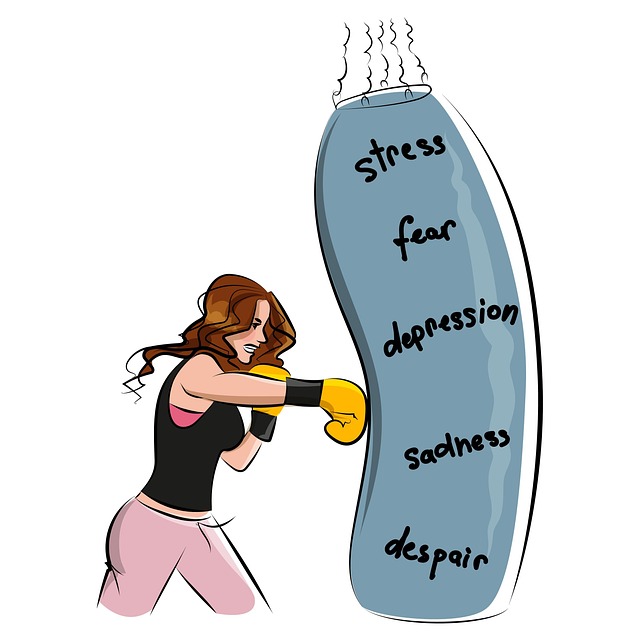Creating a mental wellness podcast for young children involves selecting engaging topics like mood management, conflict resolution, and community outreach programs, focusing on issues such as anxiety, trauma, and domestic violence. Inviting experts ensures accurate content, empowering kids with coping strategies and fostering open conversations. This approach not only educates parents and caregivers but also promotes a culture of care and resilience, making the podcast a valuable resource for mental health advocacy.
“Unveiling the power of mental wellness podcasts as a therapeutic tool for young minds, this comprehensive guide navigates the production process from concept to distribution. By choosing topics like anxiety and trauma—common mental health issues in children—and inviting experts, we empower caregivers. Production techniques focus on storytelling and sound design to create an immersive experience. We explore marketing strategies, emphasizing brand engagement and accessibility through partnerships with schools and mental health organizations, ensuring support for diverse young listeners, including those affected by domestic violence.”
- Choosing Topics and Guests: Creating Relevant Content for Young Children
- – Identifying common mental health issues in young children
- – Researching and selecting relevant topics (anxiety, trauma, self-esteem, etc.)
Choosing Topics and Guests: Creating Relevant Content for Young Children

When creating content for a mental wellness podcast aimed at young children, selecting appropriate topics and guests is paramount. It’s crucial to choose subjects that resonate with their age group while addressing issues relevant to their lives. Topics like mood management and conflict resolution techniques can be tailored to help them navigate emotions and social interactions. For instance, episodes focusing on identifying and expressing feelings, understanding boundaries, or employing simple stress reduction methods can empower young listeners.
Inviting guests who are experts in children’s mental health, such as child psychologists or therapists specializing in domestic violence interventions, ensures that the content is both accurate and therapeutic. These professionals can offer insights into common challenges faced by children and provide practical strategies for coping. By incorporating these discussions, the podcast becomes a valuable resource, fostering open conversations about mental wellness and equipping young listeners with tools to manage their emotional well-being.
– Identifying common mental health issues in young children

Recognizing mental health struggles in young children is a critical aspect of ensuring their overall well-being and fostering healthy development. Many common mental health issues, such as anxiety, depression, and trauma, can emerge during early childhood, often stemming from various factors within their environment. For instance, exposure to domestic violence significantly increases the risk of mental health challenges in children. This sensitive topic requires a nuanced approach when addressing it through a mental wellness podcast series production.
By creating content that educates parents, caregivers, and educators on recognizing signs of distress, listeners can gain valuable insights into supporting young individuals facing these issues. Incorporating discussions around conflict resolution techniques and healthy coping strategies is essential. Moreover, highlighting successful community outreach program implementations focused on early childhood mental health can inspire listeners to advocate for and access available resources, ultimately promoting a culture of care and resilience.
– Researching and selecting relevant topics (anxiety, trauma, self-esteem, etc.)

When producing a mental wellness podcast series, researching and selecting relevant topics is a crucial step. It’s essential to identify issues that resonate with your target audience while aligning with current mental health trends and concerns. For instance, delving into themes like anxiety, trauma, and self-esteem not only caters to widespread interests but also reflects the evolving landscape of mental health discourse. Incorporating niche areas such as therapy for young children or addressing domestic violence can set your podcast apart by offering unique perspectives that are both timely and impactful.
In terms of strategic considerations, integrating secondary keywords like Mental Health Policy Analysis and Advocacy, Self-Awareness Exercises, and Risk Assessment for Mental Health Professionals can enhance searchability and attract a more diverse audience. By subtly weaving these terms into episode topics, guest discussions, or even behind-the-scenes content, you can appeal to both general listeners interested in mental wellness and professionals seeking specialized insights. This multi-faceted approach ensures your podcast series remains engaging while providing valuable resources for those navigating various mental health challenges.
In producing a mental wellness podcast series for young children, it’s essential to balance accessibility with sensitivity. By choosing topics like anxiety, trauma, and self-esteem, and inviting experts such as therapists specializing in therapy for young children, we can create relevant content that addresses common mental health issues. Incorporating discussions on domestic violence underscores the importance of holistic wellness, ensuring our young listeners feel heard, understood, and supported. Remember that, through thoughtful content creation, podcasts have the potential to revolutionize mental health education and foster healthier, happier young minds.








